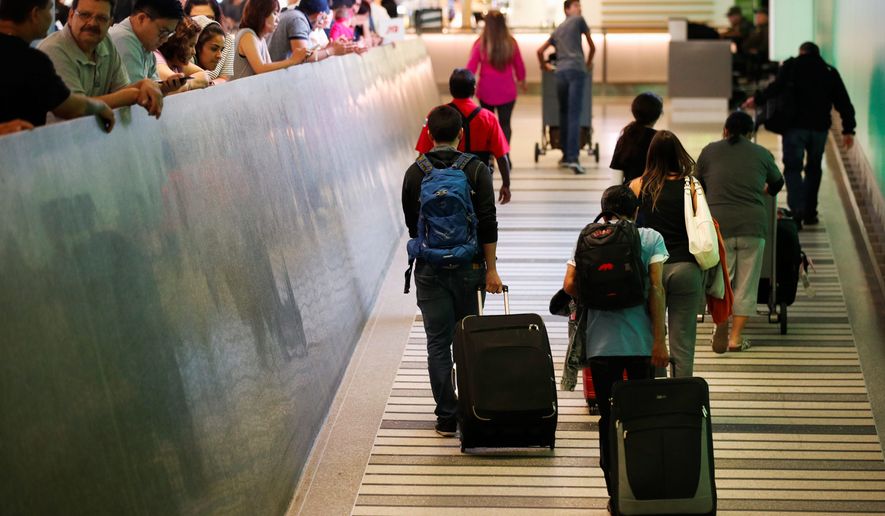The Supreme Court already has heard major cases on gay and First Amendment rights and police searches, and the justices are likely to add a momentous case about presidential power to their list early in the new year.
With President Trump’s travel ban policy once again before the high court, legal analysts predict the justices will agree to speed the case onto their docket in 2018, setting up a ruling by the end of June.
“I bet that the travel ban will indeed return to the court, probably for argument in April and a decision that last week of June,” said Ilya Shapiro, a senior fellow in constitutional studies at the Cato Institute.
The justices began hearing cases for this term in October, will finish up oral arguments in April, and then will issue decisions through June, when they close up for a three-month summer break.
Last June they issued a striking preliminary ruling on a previous version of Mr. Trump’s travel ban, reversing several lower courts and allowing much of it to go into effect.
They’d planned to revisit the case more fully early in October, but Mr. Trump released a revised version of the ban in September, sending all sides back to reargue over the new policy, which expanded the number of countries subject to travel restrictions, based on a thorough review of security cooperation.
The 9th U.S. Circuit Court of Appeals has ruled that review is still inadequate and ruled the updated policy illegal — though the court has stayed its own decision, allowing the travel ban to remain in place while the justices prepare to hear it.
Other lower courts, meanwhile, have targeted the president’s refugee policy, which calls for strict limits on numbers and countries.
Josh Blackman, a professor at South Texas College of Law, said he expects the administration to file its appeal to the Supreme Court from the 9th circuit ruling in early January.
After a slow 2016-2017 term, when the court had just eight justices for much of the time, the 2017-2018 term is full of momentous cases.
The justices kicked off the new term in October with arguments over how much politics is allowed as states draw their legislative districts, in a case that could determine whether Republicans or Democrats control the U.S. House.
The high court also dove back into gay rights issues in early December with a case over what rights observant Christians have to refuse to service same-sex weddings, and the justices will address the tension between technology and privacy with a case over cellphone tracking data argued in November.
Still to come is argument over Mark Janus, a government employee in Illinois who says he shouldn’t be forced to pay union fees if he doesn’t support his labor union’s policies.
The case will be heard in February, and if the justices rule in favor of Mr. Janus, unions could lose a substantial revenue source.
“The biggest case left to be argued is Janus, which if it goes for the non-union worker challenging agency fees, will have a major impact on public-sector unions and the money they have to spend on politics,” Mr. Shapiro said.
The justices will also hear arguments that same month in a big tech challenge about whether emails stored in overseas servers are subject to U.S. warrants.
Court-watchers said they expect other cases to take longer to develop — including a controversy brewing in the federal district court in Washington, D.C., where a judge has ordered the government to facilitate illegal immigrant girls’ ability to have abortions.
The American Civil Liberties Union argues the young women have a Constitutional right to an abortion despite being in the country illegally, while the Trump administration says federal law limits how much involvement the government can have in facilitating abortions, and as long as the illegal immigrant girls are in government care they must abide by government decisions.
Mr. Shapiro said he’s keeping an eye on Justice Anthony M. Kennedy, who some court watchers have been anticipating would retire.
“I thought he would this year, but he’s hired a full complement of clerks for next year,” Mr. Shapiro said.
• Alex Swoyer can be reached at aswoyer@washingtontimes.com.




Please read our comment policy before commenting.